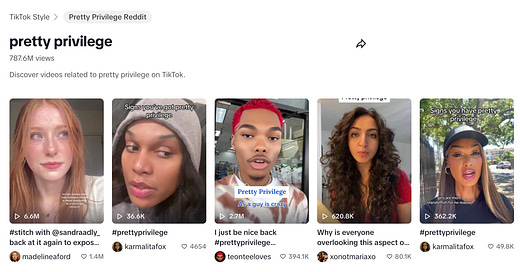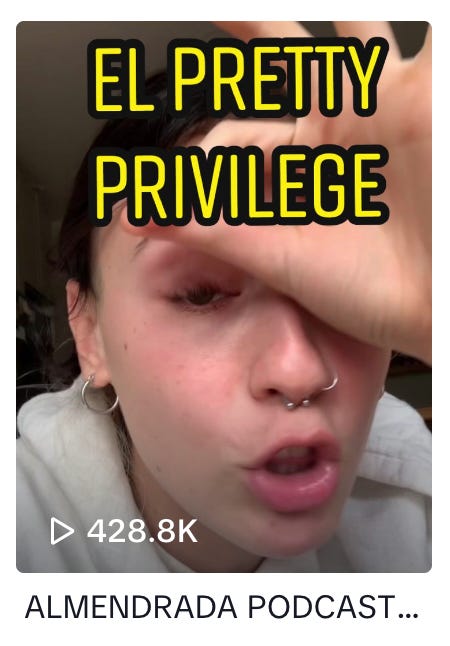Pretty Privilege: Why’s Everyone in Booktok Talking About It?
As with everything on TikTok, pretty privilege became a trend – in the book subcommunity.
A few months ago, when I was talking to a friend, the idea of ‘pretty privilege’ came to mind. I was worried about finding a job after grad school; not only does being an immigrant living in New York make it more challenging, but also the turbulence in today's media industry. His answer struck me: “Yeah, you’ll be fine, you’re pretty.”
At the moment, I just took it as a compliment and continued talking about random stuff while sipping on our overpriced drinks. But the comment stayed in the back of my mind, allowing me to question myself again about the privileges surrounding my looks. Also, I reflected on this idea that has floated around for so many years: Attractive people’s lives are much easier.
According to an article published in Forbes, in a society that remains highly fixated on external appearances, the ‘pretty privilege’ phenomenon awards significant societal advantages to individuals considered conventionally attractive. For example, according to research published by the American Economic Association, attractive people are more likely to get hired, promoted, and receive higher salaries.
As with everything on TikTok, pretty privilege ended up becoming a trend, particularly in the booktok subcommunity.
I first heard about the term through Lupita Aquino, a Latinx and US-based bookstagrammer. We were talking about social media, algorithms, and how –to nobody’s surprise– they tend to show you the most stereotypical content ever and why it’s essential to have people like her curate more independent content – in her case, books.
“[There’s a] lot of people [on social media who] are trying to do different things. But you know, many of them don’t necessarily go viral or do not get that level of attention. I mean, it’s just the difficulty of it; [we are at] the whims of an AI algorithm,” Lupita explained, “Even when you think about TikTok and people that go viral, you have that ‘pretty privilege.’”
I asked her what she meant by that: “You may have heard that term before, but [it states that] if you’re pretty, you’re going to do well on the algorithms, and people will stop and watch your videos because you’re pleasing to look at. So there are a lot of conversations happening around that one, at least in book talk and TikTok.”
After our exchange, I decided to investigate this TikTok trend more, particularly in the literary community.
To this day, #prettyprivilege has more than 791 million views on the platform, and plenty of tiktokers are addressing the issue from a book/literary point of view.
“Pretty privilege happens everywhere; it’s just a part of living in this world. But it’s incredibly frustrating that it’s happening here on booktok where the main focus is supposed to be the books and not what the people writing or reviewing these books look like,” Robin (M. Bonneau), who runs the TikTok account @blueskiesblacksoul, said in one of their videos.
Robin adds that they get more views or likes when they do their make-up or wear a filter: “I know this is a subconscious thing, but it’s something we should be more conscious about.”
They ended the video by saying that their goal is not for people to go and unfollow all the thin or attractive accounts they follow on TikTok but to think about how our internalized prejudices and biases play a huge part in the content we choose to consume.
“If we see two book talkers with comparable content, we are more likely to follow the one we find more attractive. We are more likely to follow the one who’s thin rather than the one who’s fat,” Robin concluded.







